When I was younger, I often felt self-conscious and socially awkward. In fact, one of the reasons I wanted to become a Behavioral Scientist was to be better socially.
If you often feel anxious and embarrassed, this guide is for you. It will give you the tools you need to be more relaxed in social settings, get out of your head and into the conversation.
This guide is for anyone who’s feeling overly self-aware, but examples are geared toward adults in work or at college.
Note: Sometimes, the underlying reason for self-consciousness is social anxiety. If this is the case for you, here’s our list of the best books on social anxiety.
Let’s get started!
1. Focus on someone or something
Self-consciousness comes from being overly concerned with how people see us. We worry that we won’t be seen as smart, attractive, or that others are judging us.
It can be exhausting, and with too little evidence to support the argument in either direction, we go straight to the most negative conclusion.
To get out of this pessimistic mindset, try shifting your attention to the people around you and your environment.
Focus not on what others think of you but on learning about the people you’re with. Make it a point to find out one thing about every person you meet. It could be their job, their major, or what they did on the weekend.
The objective is to get out of your head. Put that energy into the people around you rather than into feeding an inner dialogue that’s holding you back.
2. Question your inner critical voice
It’s easy to believe the negative voice inside our head is always right. But have you tried questioning it? You might find out that it has little to do with what’s real.
Check the evidence from your life:
Can you recall a time you did something that proves your inner critic wrong? For example, if your voice says, “I always mess up around people,” remind yourself of a time when you did just fine.
Ask yourself if what you are feeling is reasonable. Or, are you letting a perception you think others have of you, run the story in your head?
3. Know that people notice you less than you think
In an experiment, students were asked to wear an embarrassing t-shirt.
By the end of the day, the students who wore the shirts estimated that 46% of the class had noticed. When polled, only 23% of their mates actually had.[1] In other words, their embarrassing t-shirt was only half as noticeable as they had thought.
What feels mortifying to us is usually having little to no impact on others. People are caught up in their own thoughts and struggles, too busy to worry about ours. The best thing we can do is remind ourselves that no one cares as much as we do, and even our own filter is not a perfect lens.
4. Know that it’s OK to say some stupid things
I remember talking to a girl I was crushing on when I was in high school. She was talking about how her brother liked a band, and like a crazy person, I said, “Ya, I know.” Like somehow, I knew what group her brother liked. My crush looked at me strangely but kept going.
Did it make any difference to my crush? Not really. At this point, I can laugh about it, but at the time it felt humiliating.
Try turning the tables on the situation. Would you care if someone blurted out something silly? Or would it just pass you by without giving it extra thought? It’s better to talk freely even if you say something stupid every once in a while. The alternative is to always guard yourself, and that can make you come off as stiff and aloof.
5. Don’t try to fight your feelings
Emotions tend to cling harder when we fight them and weaken when we accept them.[2]
When you are anxious, and feeling uncomfortable in a social setting, what are you thinking about? How does thinking about that make you feel? Happy, sad, nervous, jealous? What’s your body doing when you’re in your head and feeling awkward at a party? Are you sweating, jumpy, yawning a lot (a reaction to nerves)?
Simply accept how you feel rather than trying to change it.
Now focus outward. Talk to someone. Ask them how they’re doing. What brings them to this party/event? Do they know anyone? Then check your head. How do you feel when you’re talking to someone? Do you get any less nervous as the conversation goes on? If you were blushing, has it subsided yet?
Practice going back and forth between your inner thoughts and how you feel when you are talking to others. See if you feel better when you’re in your head, listening to your internal dialogue, or when you’re spending your energy on others.
6. Focus on your positive traits
This isn’t “think happy thoughts, and you’ll be fine.” Instead, you want to base your self-worth on your real, positive qualities rather than cynical and questionable self-talk. This is what we know is true:
- You have talents and abilities that give you fundamental value.
- This combination of characteristics makes you unique and memorable.
- You are worth spending time with and knowing.
Try to list your concrete skills like your mathematical ability, you’re a good writer, you’re multilingual, you’re a great cook. Then there are your personality traits. You’re kind, honest, genuine, funny, enthusiastic, etc.
Even if you can’t make a full list today, write one positive quality down every day and then review the list every week. When you have a comprehensive list, read it every day. You’re training your mind to focus on what you do well and to be able to access it quickly.
7. Make sure you’re reading the situation right
Negative experiences can teach us to be on guard and defend ourselves from criticism and hurt. This can affect how we perceive the world and the people we encounter.
Those of us who are overly self-conscious might believe the world will judge us harshly because that is what we’ve experienced. However, as I’ve pointed out, people don’t care that much about how we act or what we say. Every new person you meet thinks of you as a blank slate.
When you’re in a scary social situation, ask yourself, “Is there a chance my past experience is affecting how I’m seeing this interaction? Is there another, more realistic way I can approach his conversation?”
Believe people will be friendly, and most of the time, they will be. If not, it says more about them than you.
8. See yourself as a social observer
People watching is fascinating, and it shows us how our basic humanity makes us all messy, foolish, and funny. Go to the mall, grab a coffee/tea, and watch people walk with their friends. Listen in as they sit beside you and talk, or as they chase their kids down the hall.
Now notice their body language, their tone of voice, and eavesdrop on what they’re saying. What we’re doing is training you to switch your focus from yourself to others and to think objectively about what you’re witnessing.
Are people relaxed or stilted? Is their posture good, or are they slouching? When they talk, are they quiet, or does the volume go up and down with excitement? The more we see others being their imperfect selves, the more we’ll realize this is what ‘normal’ looks like.
Go into this observer mode when you walk into a room of strangers. It can help you be less self-conscious.
9. Assume that people will like you
This one is about the mechanics of being seen as confident rather than inhibited or self-conscious. When we feel uncomfortable, it can make us talk softer, hug our bodies with our arms, and speak faster to get the words out and move the focus off us as soon as possible. It can make us seem aloof, and even if we don’t intend to, it makes us less approachable.
Be confident and friendly right off the bat. Walk up to people with a warm smile and present yourself. If you’re uncertain about the details, look at how likable, confident people do it and learn from them. Assuming people will like you is a self-fulfilling prophecy. Assuming they won’t is, too.
10. Ask about others to take the focus off you
It’s easier to focus on someone else other than ourselves. When you meet someone for the first time, ask them what they do for fun. What are their hobbies, or do they have any pets? Listen carefully, nod, and give them signs that you are enjoying their story. Then add anything relevant that applies from your life. Things like your pets – what kind are they, their name, breed…or your hobbies. At the end of the day, you want to have a balance between learning about them and sharing about yourself.
The goal is to learn about someone else because it’s hard to be self-conscious when you’re focused on getting to know another’s interests and stories.
11. Make internal progress checks, not comparisons
Jealousy is a miserable emotion. It makes you feel small and worthless and sucks the joy out of everything. It’s like anger directed at someone else, but you are the one who feels crappy.
Avoid both overexaggerating someone else’s talents or trying to find flaws in them to make yourself feel better. No one is perfect, and tearing them down when you feel envious just retains the focus on you because you are still comparing yourself to someone else.
Here’s a thought: What if we were OK with the fact that someone is more accomplished than us? When we accept this, it helps us see ourselves differently.
Our value then has nothing to do with how successful we are or how good we are at something. We want to go from “I like myself because I’m good at…” to “I like myself.” (Period.) This makes our self-acceptance unconditional.
How do we accept that others are more accomplished than us and be OK with that? First, let that fact sink in, and allow all your emotions of envy and sadness to come to you. Accept those emotions rather than fight them. Now, you no longer need to fear them. Afterward, you will be less prone to comparisons.
Here’s another way to do it:
Instead of thinking, “Well, at least I’m better than them when it comes to X.” Say, “I’m not good at everything, which is OK because my value isn’t based on my achievements. I have value because I am 100% myself”.
Let’s talk more about how to be more self-accepting…
12. Practice accepting yourself
Self-acceptance is one of the biggest steps we take towards achieving self-confidence.
According to Aaron Karmin, MA, LCPC, a psychotherapist in Chicago, Ill, a person “who accepts [themselves] unconditionally as a worthwhile human in spite of [their] faults and imperfections does not experience the stress of self-consciousness.”.[3]
Here are some things you can do to accept yourself:
- Decide how you are going to live your life. Will you let others define your personal image, your strengths, and your weaknesses? Try to move from blame, doubt, and shame to tolerance, acceptance, and trust.
- Make a list of all your good points.
- What do you do well?
- What are you proud of accomplishing?
- Whose lives have you made better?
- Connections you’ve made with others.
- Hardships you have overcome.
Review the list often, so you see your progress and acknowledge your gifts.
- Take an inventory of the people close to you.
- Are they good for you?
- Do they reinforce negative self-talk?
- Do they criticize or demean you?
Consider eliminating all the negative influences in your life.
- Surround yourself with a positive support group of people who celebrate you.
- Forgive yourself. If you made a mistake, realize you did your best with the information you had at the time, or you simply made a bad choice. But now you chose to move on and forgive yourself.
- Silence your inner critic. Just because it’s hard to hear doesn’t mean it’s right or 100% true. If you wouldn’t talk to someone else like you speak to yourself, why is it OK to do it to you? You’re human like everyone else. Treat yourself as well as you treat anyone else, if not better.
- Move on from your unrealized dreams. You can’t change the past. All you can do is move forward and continue to pursue your current goals.
- Help yourself see how you make others’ lives better. It’s harder to see yourself in a harsh light when you acknowledge all the good you do.
- Let it go – You can’t control everything. It’s not resignation. It’s a realization that your energy is better spent elsewhere instead of railing against the things you can’t change.
- Try to solve your problems one at a time. First, step outside your head where all the worry and self-doubt resides. Take a dispassionate look at what you need to do to move past each issue. You could even try imagining that the problems you’re facing are someone else’s (if that helps you get away from your internal thoughts). Ask yourself what advice you’d give them (yourself) to help?
- Practice Self-compassion – accept your flaws and love yourself anyway. Simple words, but for most of us, it takes years, if not a lifetime to master this step. The more you do it, the better you’ll get in every respect.
- Even though you may not have much experience being kind and compassionate with yourself, you will start to believe these good things you’re telling yourself. Especially if you keep this positive internal monologue up. In many instances, it took years to get to this place of insecurity. It will likely take weeks and months to see progress and make permanent changes to your mental habits.
13. Practice thinking about other’s needs
Try doing thoughtful things for others. Consider their struggles, worries, dreams or regrets. When you do, you take the focus off yourself and you’ll connect with them. This will help you be less self-conscious.[4] It will also show others that you are caring, and you value them. Done selflessly, it will bring good things back to you.
Here are some suggestions:
- Smiling at someone after you meet them. It could be a friend, family member, or acquaintance. Let the smile happen as you talk to them, so they know you are smiling just for them because it grows after you say, ‘Hi.’
- Hold a door for someone.
- Give a spontaneous compliment.
- Bring a friend or co-worker cookies or a pre-made dinner if they are sick or need a pick-me-up.
- Pay it forward. Pay for the coffee or drive-thru meal of the people behind you.
- Keep your area tidy and organized if you work in an open-concept office.
- Send cards for different occasions or for no occasion at all.
- Give someone 100% of your attention and note what they say so you can follow up later. (Ask them how ‘it’ went. Make sure they are OK afterward.)
- Consciously spend a few minutes every day thinking of the things you are grateful for.
A word of caution: Do not do these things to gain others’ approval. That puts the focus back on you. Do it out of sincere consideration for others. The purpose of the exercise is to focus on others and their well-being. When you do, you’ll become more compassionate and less self-conscious.
14. Consider talking to a Therapist
If your self-consciousness is inhibiting you or is a result of social anxiety, a therapist can be helpful. Having social anxiety is more common than we think, and deciding to understand and address the effect it has on your life is brave. A Psychologist or a Therapist will help you talk through your feelings, find out where they originate from, and give you the tools to unpack them and move forward.
We recommend BetterHelp for online therapy, since they offer unlimited messaging and a weekly session, and are cheaper than going to a therapist's office.
Their plans start at $64 per week. If you use this link, you get 20% off your first month at BetterHelp + a $50 coupon valid for any SocialSelf course: Click here to learn more about BetterHelp.
(To receive your $50 SocialSelf coupon, sign up with our link. Then, email BetterHelp’s order confirmation to us to receive your personal code. You can use this code for any of our courses.)
You can also try contacting your insurance company or doctor for recommendations.
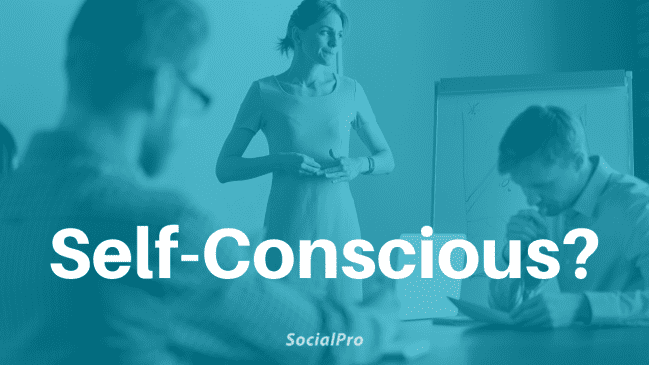





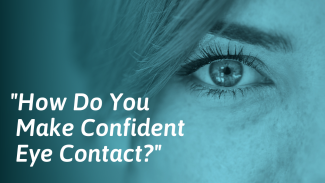

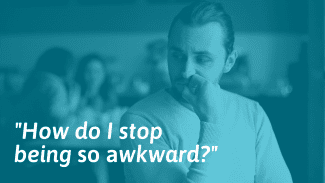

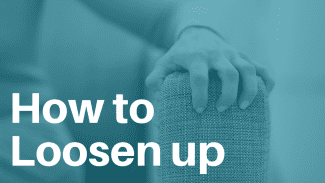
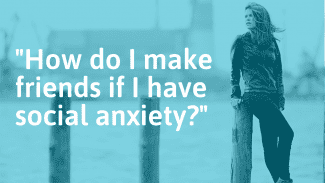
I am an introvert..and I avoid public places bcz of my appearances …I m petite and I feel like people are judging my body and laughing inside…I feel like everyone is staring me as if I m the only creature in this world…I feel afraid of being ignored..!most of the time when I talk to my relatives or friends they ignore me as if I don’t exist..it makes me feel so week and depressed!
I am afraid of being ignored and not liked. At times, when someone doesn’t reply to my messages within a certain time frame, I doubt they don’t like me anymore, or if I have done something wrong that they dont want to talk to me anymore, so I feel sad and I start thinking of stupid things that they might be thinking about me and that heck I should just not talk to them anymore, and while Im busy thinking of all of this, they reply back.. I keep reminding myself of “hey , they might be busy at work or something” but I still feel scared what if they dont like me anymore..
Sonia, this is so true for me too! When they don’t reply or forget to reply I feel like I’m being ignored because they don’t like me anymore.
I almost at times feel the same, but a little I have learnt is that, it your mind that keeps telling things and it is very difficult to doubt what the Mind is tell you especially in situations like this, but in reality it is the opposite of what you think.
I run away from abuse had no one to turn to
People di not want to hear the story saying
I had no right to talk about it
But I did.
I saw that I can make mistakes for the first time in a long time
Allowing my self to be able to talk
I know others have trouble to I learnt.
im always thinking how my actions can affect someone but always thinking from my perspective and not theirs. I always think that how my actions affect them in a way like how i would feel if someone does the same action to me.
I always worry about how awkward and annoying i am at social settings. My bf recently broke up with me because he thought i was too quiet and shy and not social. I am trying everything i can to make him realize that i want to be social and i know i can but my anxiety gets in the way. Everyone for the most part likes me and i always get along with everyone but the social aspect is causing problems and i want to fix it and get back with my bf. Even around him i completely shut down and i want to have better communication skills.
He doesn’t really care about you. Why would you want to get back with someone who abandoned you because for who you are? He’s not worth it. Love yourself.
About the communication skills, I found at that it is nervousness that makes you think that, have tried being around close relatives like your brothers or sisters or parents, this will let you know you have a great communication skill, it is the level of anxiety causes that.Am a victim to this.
Im a matyre student. I have been bullied, stared at, then ignored and excluded. Now I’ve moved to a new branch i get shaking even when wete sat listening to each other. I bite my lip because i find it trembling the whole time.
Im afraid of being subjected to the same treatment because there are a lot of students in this class that just stare. I try not to let it bother me at look directly at them but it always makes me feel shocked wgen our eyes actually meet.
Im afraid I’ll be judged for being old like i was before.
i’m afraid of being judged for my looks, the way i talk, the way i act, the things that i say out loud. every time i want to say something, i think about over 10 times before deciding whether i should really say it. but more often than not i don’t end up saying my thoughts and speaking up because it often ends up with me being nervous and anxious. i’m also afraid of being judged by how socially awkward i can be in social situations m.
I’ve always been annoyed at how awkward I can be in social settings. I’m almost always quiet around strangers and am worried that people might view me as aloof and not interested in making connections. Sometimes I don’t know what to say. I’m also worried that people might judge my appearance for some odd reason. People tell me I’m pretty, I have a boyfriend and I still feel like this. I act normal on the outside but deep down I don’t know how to break out of this cage of insecurity.
you are not alone! i feel this all the time. people tell me i’m pretty/beautiful without me fishing for that kind of compliments and i have a bf as well but i still do get anxious about those issues. especially when in social settings. i somehow just don’t know how to act and what to say and i’m often the quietest in the group 🙁
I often think I will make mistakes in trying to express myself. I usually feel shy, anxious and blank out most time. Lastly, I struggle with flow in my speeches.
I was born in a small provincial town. Our family had their own house and yard. There was an ancient park nearby, and you could hear the sound of pine trees at night.
I played with my comrades in war, Indians and cowboys, made crossbows and bottle grenades, fished in a river, swam in the lake, listened to jokes in the company in the evening, walked around the old park, rode a bicycle found in the forest, looked at the stars at night sky.
And then my mother got sick and died six months later.
After some time, the mother’s friend introduced the father to her friend in order to create a new family. There was the prospect of moving to a large metropolitan city. In a thrilling apprehension of a new life, I fantasize new friends, new games and hobbies. It was necessarily go-kart.
Father asked me and my brother if we would like to move? I do not know what to answer.
And so the decision has been made – we are going.
A year and a half passed and I had to leave my homeland with regret and excitement, I said with sadness goodbye to the apple trees in my native garden to set off for a new life.
My new family is my stepmother and her sister, my father and my older brother. We were received very well. We moved to their house – an apartment with two rooms. I was 11 years old.
A few days later my stepmother took me to a new school. I remember this day well. It was September 1st. In the courtyard of the school a column of schoolchildren gathered for a festive procession on Victory Square. I stayed in this column among my future classmates to wait for the command “Come!”. We stood for a long time. I looked at the guys, listened to their merry chatter and embarrassedly noticed my embarrassment and awkwardness. I did not know what to say. It seemed to me that I forgot all the words. And I faithfully endured. I did not see another way.
It would seem that this is normal. After all, around me were completely unfamiliar people from an unfamiliar city. I guess I thought so then. I will begin to get acquainted – I will begin to communicate.
But it didn’t get any better. Weeks and months passed, and my own state of stiffness and confusion did not leave me. Most of all, I was afraid of changes between classes, when I had to get up from my desk and go somewhere … «to talk» and to pretend that I was fine and feel normal, calm and fun. It was a real torture – I wandered alone along the corridor to hide my confusion and helplessness. I was infinitely ashamed. I was angry with myself and felt my self-esteem disappear forever. From somewhere inside a terrible guess erupted that I was losing my mind. Until others have not seen it, there was a hope that it is still not so bad. But what if it breaks out? Then I will be locked up in the house of the insane, and an eternal loneliness will meet me among the madmen screaming from madness. And will I scream too?
I was constantly looking for a reason why I am not talking. I could not understand. My comrades came up with my nickname – “fish.” A sign of eternal silence.
Im afraid of turning red in the face. It could happen anywhere for example on the train, in the classroom or when I eat with others.
Hi, I’ve written more about how to stop blushing here: https://socialself.com/blog/stop-blushing/
I worry that other people will think I’m boring. I wish I could find a flow in conversations but after a couple of minutes I just sorta dry up and go blank and smile and run out of things to say.
I’m scared of what people think about my personality. I’m an extreme introvert and being around very open people can make me anxious, if I don’t know them. I get extremely shy around new people, so afraid that they wont like me. And I hate it. I’m also veeery socially awkward to the point where I dread simple things like ordering a coffee from an employee. Every time I hang around people it’s like I get drained. And it’s not because I don’t like them, that’s just me as a person. And I might want to leave earlier than everyone else, not because I dislike the people I’m around, heck I might even love them! But I get really tired and just need to get away from people for a while. And I respect that others feel relaxed and get energized by being around others. And I think it’s time they respect that I need to be alone, with my book, in the darkness, to get my energy back. So, please, don’t try to push me out of my comfort zone. I’ll walk out of there when I’M ready,
My biggest problem is.. When i meet somone it is normal for 2 to 4 days but after sometimes people starts ignoring me…
I am afraid of being judged.I thought people’s think of me I am worthless,I ain’t fun, I ain’t good enough to have around,and that makes me more quiet than I am before
I am also afraid of people knowing I feel anxious or afraid. I fear people will think I’m selfish. Maybe it’s rooted in a deep-seated belief I will never experience good things so I go hard after temporary feelings of acceptance and stuff like that
I wanna be successful but my health is meh
Thank you for this
I ask for guidance from the universe for strength in this health journey.
Stop being afraid. Go and walk every day
Wake by 11:45 no exceptions
I want attention maybe afraid i won’t get it or this world is a competition
I must love myself . ❤️ You
I am no longer afraid of looking stupid in the way of lying in the perception of strong willed insolent people. My own opinion is enough… I love my mom even if she can be hard on me, she deals w a lot and I’m blessed. Dad loves me as well
Make them proud. Work, man. Don’t be afraid of judgment
If someone hurts you let God handle it
It’s a big move. And move on.
It’s about relationships but you just focus on growth outside the 3 days. Maybe getting a chat agent job for Th/Fri if I have to
Don’t be afraid of losing time to not spending w family
It’s better they see you happy
PPM.
I’m afraid of blanking out cause of my anxiety. I always cut myself short and never get to truly express myself especially in new settings. I want to draw people in and then I realize I’ve forgotten all of what I could say and end up sounding immature or less intelligent than I know I can be. I’m shut down often by people telling me I’m quiet.
I’m afraid looking weird when i am alone (all the time). And being weird whenever i talk to someone, because i don’t know how to react and most of times i don’t answer anything cause idk what should i say. You know?
I am afraid of saying the wrong thing and being perceived as weird by my peers. I always felt as if I never fit with the in crowd or havent been able to connect to peers and ususally that makes me go with tthe so called “weird” group of kids. I guess I have a;ways worried about being popular and accepted and not judged.
My biggest insecurity is that I have this gynaecomastia (manboobs). And my friends would comment infront of girls. They make look like a joker infront of them and girls would watch me when I enter the class
My biggest fear is arriving early in class because i find a group of students socializing and I’m just standing there alone…I’m kinda embarrassed that i don’t have friends
A lot of people I knew before I got social anxiety look up to me like I’m a font of wisdom who’s untouchable and impossible to worry. And I am very hard to get to, so I’m worried that in showing vulnerability I’ll disappoint those who revere me and prevent any new people present from ever reaching that stage.
My biggest fear of being judged is people noticing how different and awkward I am compared “normal” (non introvert non adhd) . I try to do and say things that make me seem more normal.
I’m afraid that when I’m talking to people my face will turn red and I will sound stupid while talking because I’m so nervous I will forget what I was saying in the first place. I also worry that people will think what I have to say is meaningless or boring. If there is more than 1 person I am looking at while talking, I will usually stay quiet and then I worry that they will think I’m snobby or rude and even if I don’t talk they won’t like me.
Hello
I am anxious about my appearance. My face, my body and my clothes. I think they are not good enough. I can improve the way I wear but about my body I can hardly make any difference. I am thin and my height is 1.58 m.
Hello everyone,
I’m afraid that people will think that I’m weird or rude just because I have trouble talking to others. I don’t understand how people can think someone is being rude when they are just uncomfortable in front of others. I don’t speak to them because I know I’m below all of them, not above them.I often try to express myself through what I wear and my actions. I try to look my best in front of others hoping that they’ll try to talk to me. I know you shouldn’t judge people by appearance, but taking the effort to do my hair and buying new clothes is my way of showing that I want to not be invisible to others and just want someone to talk to. I always try to be polite and apologize if I mess up and say thanks whenever someone is nice to me. I hate the feeling of not belonging or just feeling like I don’t exist to others but at the end of the day, it’s mostly my fault for not having the courage to talk and make myself noticed. Sorry if this doesn’t make much sense, I’m really hoping these articles will help me be alone a more confident person!
I feel the same as you said in your first line , I also have trouble talking to people and fear sounding rude or nerdy etc.
I am afraid of being judged on how I may pronounce a word or just unsure of what needs to happen in each situation. At the same time be brave enough to ask for assistance when it occurs..
That people will see how ugly, stupid and boring I am. That they will see that I’m trying to cover it up.
Hi everyone,
Those stories are inspirational but please whateva happens plz do not give up ur lives are far more important than that even tho u have all these insecurities it doesn’t matter you are allowed to be who u want 2 be don’t try and live up to other peoples expectations it is such a waste of time (believe me) have faith that things will work out and just believe in yourself.
I always have trouble speaking because I have a super quiet voice so a lot of time when I speak I think people are ignoring when in reality they probably just can’t hear me. But even though I know this, I still feel hurt when I know I’m not heard. I’m also just worried that they will just think that I’m not fun to be around.